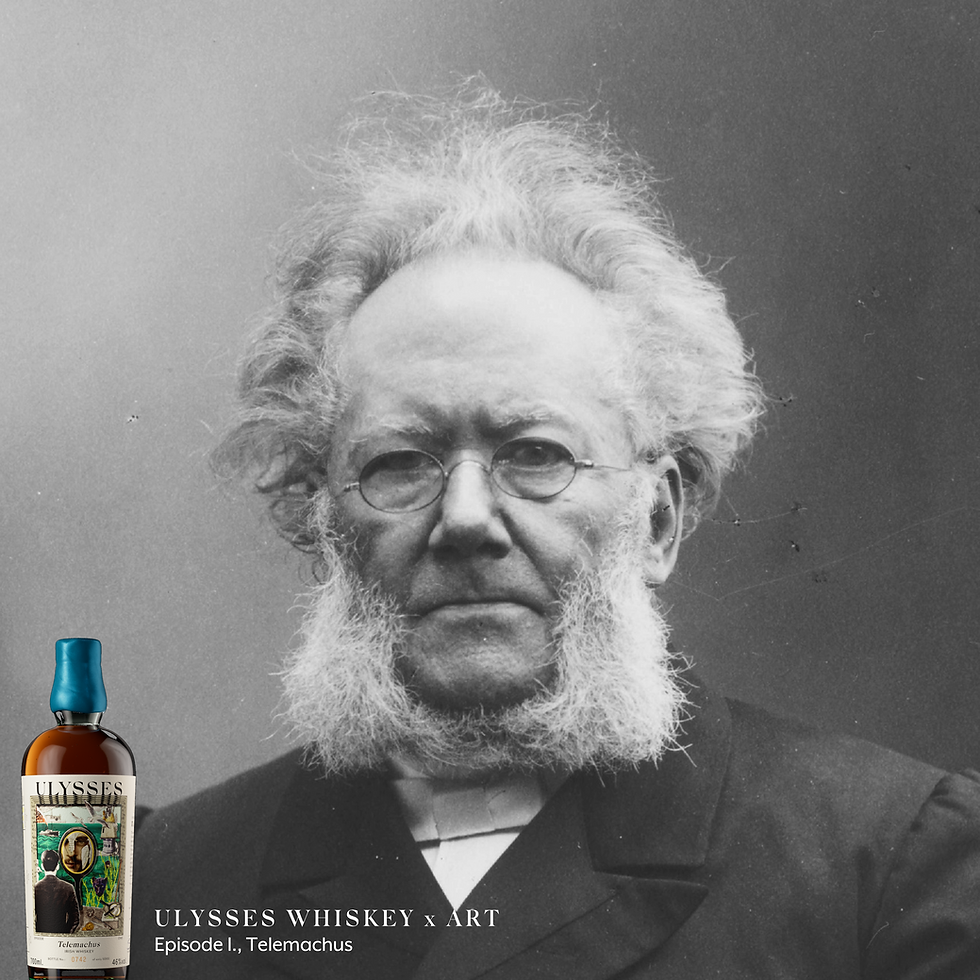The Influence of Norwegian playwright Henrik Ibsen on James Joyce and Ulysses
- Paul Dubsky
- Aug 12, 2024
- 2 min read
Updated: May 29, 2025

Henrik Ibsen, the pioneering Norwegian playwright, may not immediately come to mind when thinking about James Joyce and his groundbreaking novel Ulysses, but the connection between the two is both profound and illuminating. Ibsen, renowned for his realistic plays that challenged societal norms, was a major influence on Joyce’s development as a writer. Joyce’s admiration for Ibsen’s work shaped his own approach to literature, and this influence is subtly woven into the fabric of Ulysses.
James Joyce discovered Ibsen’s work as a young man, and it left an indelible mark on him. Ibsen’s plays, such as A Doll’s House and Ghosts, were revolutionary for their time, tackling issues like gender roles, morality, and individual freedom with a frankness that was both shocking and exhilarating. Joyce found in Ibsen a kindred spirit, someone who was unafraid to confront the hypocrisies of society and to push the boundaries of what literature could achieve.
Joyce’s early exposure to Ibsen’s work inspired him to pursue a similar path of literary rebellion. Joyce saw in Ibsen a model for how literature could challenge the status quo and reveal deeper truths about human existence. Ibsen’s influence on Joyce was not just stylistic, but also ideological, laying the groundwork for the radical themes that would later define Ulysses.
Joyce was so captivated by Ibsen that, at the age of 18, taught himself Norwegian to write a letter of admiration to the playwright. This act of devotion was indicative of how deeply Ibsen’s works resonated with him. Ibsen’s emphasis on psychological realism and his unflinching portrayal of the inner lives of his characters can be seen in Joyce’s own writing, particularly in the way he delves into the minds of his characters in Ulysses. Just as Ibsen had done in his plays, Joyce sought to depict the complexities of human consciousness and the struggles of individuals against societal constraints.
In Ulysses, Joyce’s characters wrestle with personal and societal issues in a way that echoes Ibsen’s protagonists. Leopold Bloom, the novel’s central character, is an ordinary man whose thoughts and experiences are laid bare with a psychological depth that owes much to Ibsen’s influence. The themes of alienation, identity, and the quest for self-understanding in Ulysses can be traced back to the moral and existential dilemmas that Ibsen so powerfully explored in his plays.
It is safe to say that without Ibsen, there might not have been a Joyce as we know him—a writer willing to challenge literary conventions and explore the uncharted territories of the human psyche. This influence is a testament to the ways in which great writers inspire and shape one another across time and geography. The legacy of Ibsen’s work lives on in Joyce’s masterpiece, a tribute to the enduring power of literature to transcend boundaries and inspire generations of writers.
Welcome to the journey.



Comments